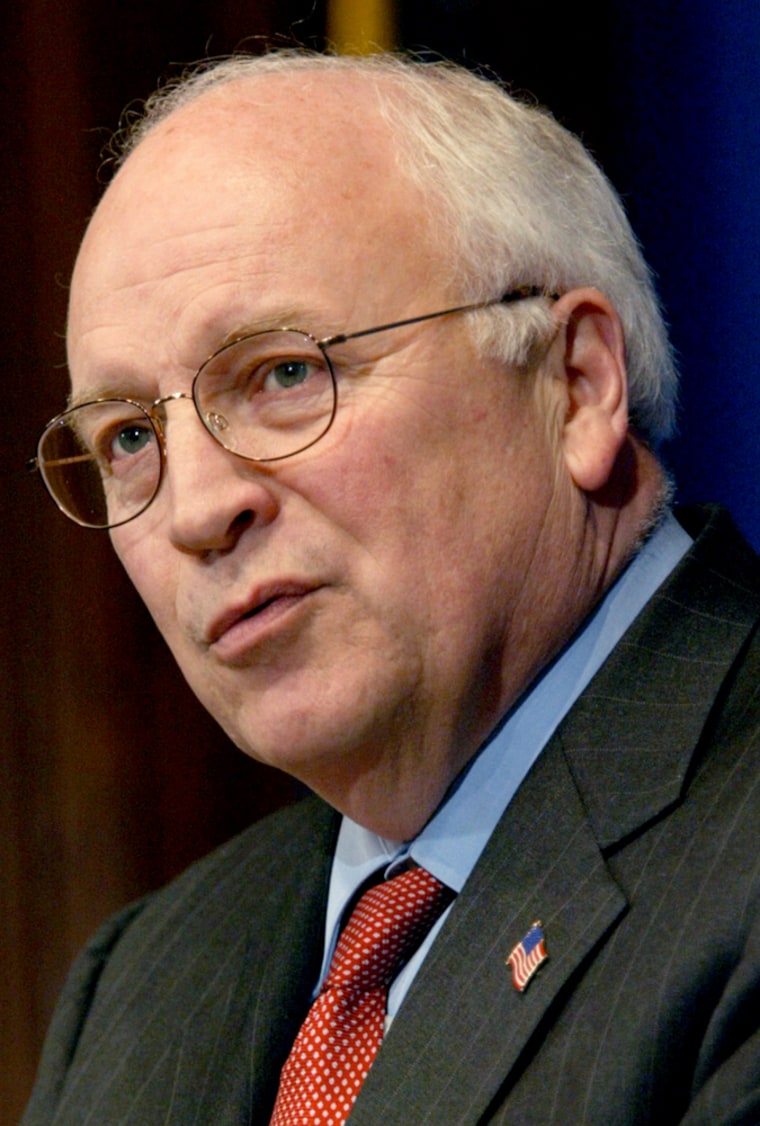Vice President Dick Cheney won more than a legal victory Thursday as the Supreme Court ruled, in effect, that two Cheney adversaries, the Sierra Club and the gadfly group Judicial Watch, would not any time soon get their hands on documents revealing the workings of the energy task force Cheney headed three years ago.
For candidate Cheney and the man on the top of the Republican ticket, President Bush, the court’s 7-2 ruling amounted to a clear short-term win for their re-election campaign, because it requires further proceedings in a lower court and thus makes very unlikely any release of energy task force documents prior to Election Day.
Whether any of those documents, if published, would change any voter’s perception of Cheney and Bush is another matter.
Judicial Watch and the Sierra Club — which has endorsed presumptive Democratic candidate John Kerry and endorsed Al Gore in 2000 — charged that Cheney’s task force included energy industry bigwigs as de facto members and therefore was subject to a law that requires disclosure of the work of advisory groups that include non-federal employees.
In the end, many of the task force’s recommendations for expanding energy supplies were, not surprisingly, the same ones Bush had made during the 2000 campaign.
The justices sent the Cheney case back to the Court of Appeals, so it is conceivable that someday Judicial Watch and the Sierra Club will get the documents they seek. Someday — not before Election Day.
“The only real bad news here is we're still in the dark about what happened with the Cheney energy task force,” said David Bookbinder, Washington legal director of the Sierra Club. “Information about the task force and its ties to the energy industry will not come to light before Nov. 2. God only knows how long it will take.”
The seven-justice majority, in an opinion written by Justice Anthony Kennedy, emphasized that it was directing the appeals court to set a very high threshold for disclosure of documents from the task force.
The justices assailed the sweeping request for documents by the Sierra Club and Judicial Watch, calling it “unbounded in scope” and “anything but appropriate.”
Cheney’s adversaries, the court said, had asked for “everything under the sky.”
Limit document search
That harsh language is a telling indication that the appeals court, when it re-hears the case, will not allow Cheney’s foes many of the documents they want.
“This is a very big victory” for Cheney and the government lawyers, said Prof. John Duffy, an expert on administrative law at George Washington University Law School in Washington and a former law clerk to Associate Justice Antonin Scalia.
“They won almost all they had asked the court for,” he added.
Duffy called the court’s scathing description of the request for documents “extraordinary.”
“If the appeals court judges follow the instructions and certainly the hints of the Supreme Court, then the government will win almost everything it wants,” when the case is re-argued in the Court of Appeals, Duffy said.
Why do the president and his advisers need to be shielded from document searches by groups such as the Sierra Club? The justices answered that question by stressing “the paramount necessity of protecting the Executive Branch from vexatious litigation that might distract it from the energetic performance of its constitutional duties.”
It added that “all courts should be mindful of the burdens imposed on the Executive Branch in any future proceedings.”
For Democrats who see the Bush-Cheney administration as secretive and unduly influenced by corporate interests, Thursday’s decision provided little comfort.
Two dissenters
They can take some solace from the dissenting justices, Ruth Bader Ginsburg, joined by David Souter, who accused the government’s lawyers of unwillingness to propose any accommodation with their foes by agreeing on a narrower request for documents.
Ginsburg cited what she called “the Government’s failure to heed the court’s instructions” in the federal district court where the controversy started.
The Sierra Club’s Bookbinder saw some grounds for optimism: “The Supreme Court was pretty clear in rejecting the Bush administration’s argument that they should stop this case and throw us out of court.”
While acknowledging that the request for documents was very broad, Bookbinder said “the Supreme Court is saying ‘you’re going to get something.’ Are we going to get shut out? The answer from the Supreme Court is ‘no.’”
The Sierra Club had filed a motion urging Scalia to recuse himself from the case after the Los Angeles Times reported that he had gone on a duck hunting trip in Louisiana last January with Cheney.
Rebuffing that idea, Scalia took part in the case and joined the majority, but dissented in part, along with Justice Clarence Thomas. They argued that the district court had “clearly exceeded its authority in this case” when it ordered a wide-ranging search of executive branch documents.
At issue in this November's election, of course, is not only the future of Cheney and Bush, but the future composition of the court. Four years ago, Bush identified Scalia as one of his models of what a justice should be. Kerry, on the other hand, as president would make sure no more Scalias got on the high court.
